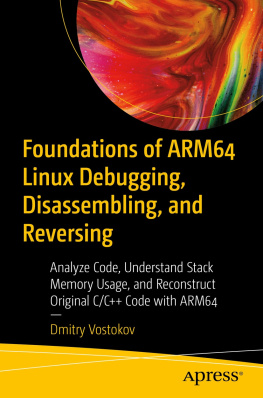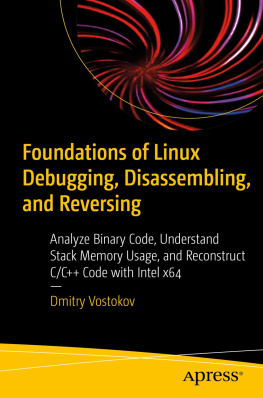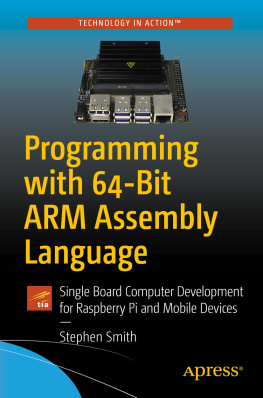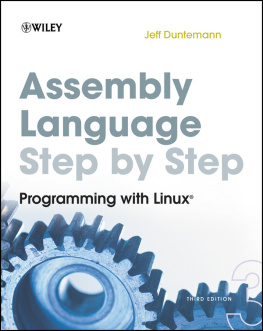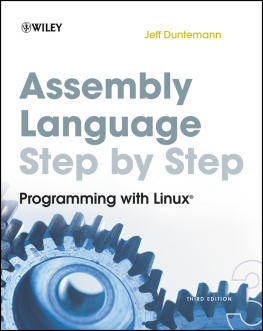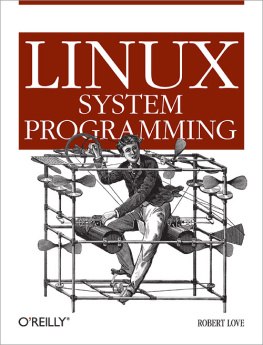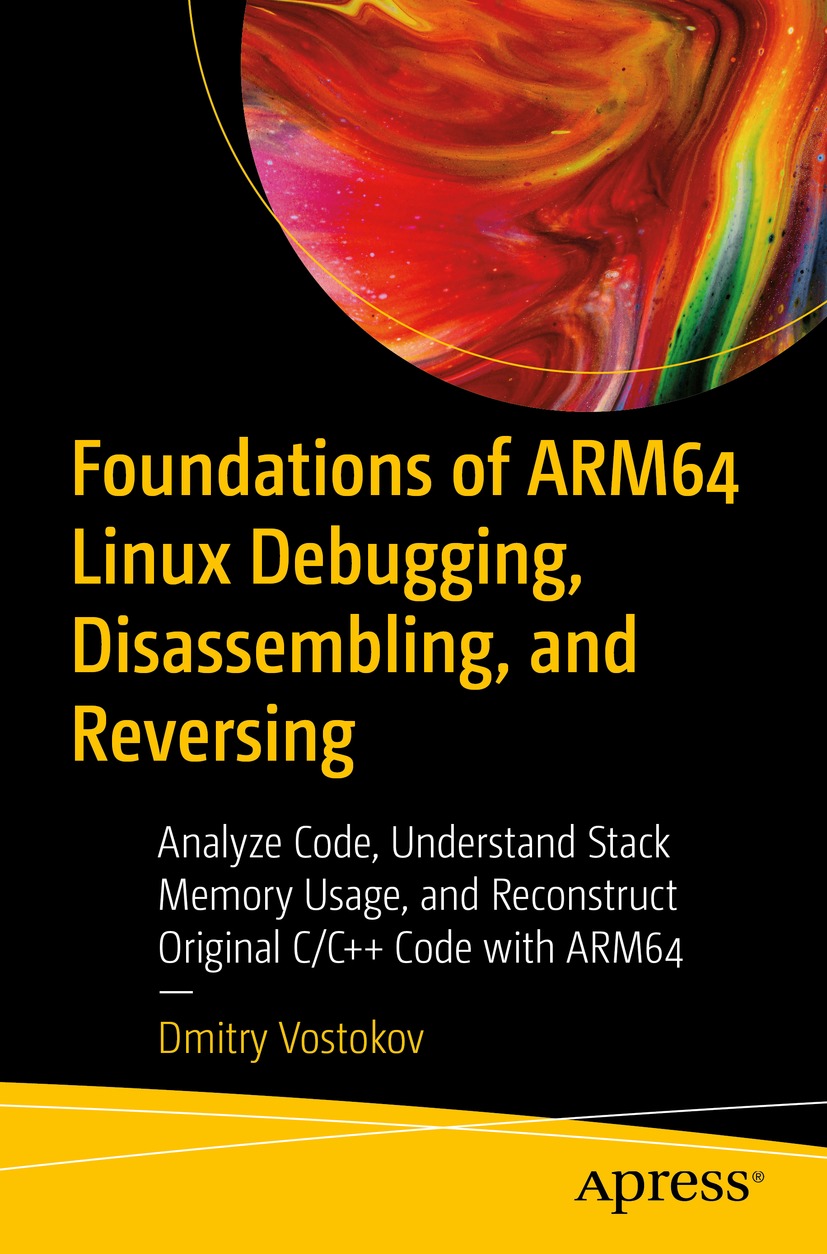Dmitry Vostokov - Foundations of ARM64 Linux Debugging, Disassembling, and Reversing: Analyze Code, Understand Stack Memory Usage, and Reconstruct Original C/C++ Code with ARM64
Here you can read online Dmitry Vostokov - Foundations of ARM64 Linux Debugging, Disassembling, and Reversing: Analyze Code, Understand Stack Memory Usage, and Reconstruct Original C/C++ Code with ARM64 full text of the book (entire story) in english for free. Download pdf and epub, get meaning, cover and reviews about this ebook. City: Berkeley, CA, year: 2023, publisher: Apress, genre: Computer. Description of the work, (preface) as well as reviews are available. Best literature library LitArk.com created for fans of good reading and offers a wide selection of genres:
Romance novel
Science fiction
Adventure
Detective
Science
History
Home and family
Prose
Art
Politics
Computer
Non-fiction
Religion
Business
Children
Humor
Choose a favorite category and find really read worthwhile books. Enjoy immersion in the world of imagination, feel the emotions of the characters or learn something new for yourself, make an fascinating discovery.
- Book:Foundations of ARM64 Linux Debugging, Disassembling, and Reversing: Analyze Code, Understand Stack Memory Usage, and Reconstruct Original C/C++ Code with ARM64
- Author:
- Publisher:Apress
- Genre:
- Year:2023
- City:Berkeley, CA
- Rating:3 / 5
- Favourites:Add to favourites
- Your mark:
Foundations of ARM64 Linux Debugging, Disassembling, and Reversing: Analyze Code, Understand Stack Memory Usage, and Reconstruct Original C/C++ Code with ARM64: summary, description and annotation
We offer to read an annotation, description, summary or preface (depends on what the author of the book "Foundations of ARM64 Linux Debugging, Disassembling, and Reversing: Analyze Code, Understand Stack Memory Usage, and Reconstruct Original C/C++ Code with ARM64" wrote himself). If you haven't found the necessary information about the book — write in the comments, we will try to find it.
Gain a solid understanding of how Linux C and C++ compilers generate binary code. This book explains the reversing and binary analysis of ARM64 architecture now used by major Linux cloud providers and covers topics ranging from writing programs in assembly language, live debugging, and static binary analysis of compiled C and C++ code. It is ideal for those working with embedded devices, including mobile phones and tablets.
Using the latest version of Red Hat, youll look closely at the foundations of diagnostics of core memory dumps, live and postmortem debugging of Linux applications, services, and systems. Youll also work with the GDB debugger and use it for disassembly and reversing. This book uses practical step-by-step exercises of increasing complexity with explanations and many diagrams, including some necessary background topics. In addition, you will be able to analyze such code confidently, understand stack memory usage, and reconstruct original C/C++ code.
And as youll see, memory forensics, malware, and vulnerability analysis, require an understanding of ARM64 assembly language and how C and C++ compilers generate code, including memory layout and pointers. This book provides the background knowledge and practical foundations youll need to understand internal Linux program structure and behavior.
Foundations of ARM64 Linux Debugging, Disassembling, and Reversing is the perfect companion to Foundations of Linux Debugging, Disassembling, and Reversing for readers interested in the cloud or cybersecurity.
What Youll Learn
- Review the basics of ARM64 assembly language
- Examine the essential GDB debugger commands for debugging and binary analysis
- Study C and C++ compiler code generation with and without compiler optimizations
- Look at binary code disassembly and reversing patterns
- See how pointers in C and C++ are implemented and used
Software support and escalation engineers, cloud security engineers, site reliability engineers, DevSecOps, platform engineers, software testers, Linux C/C++ software engineers and security researchers without ARM64 assembly language background, and beginners learning Linux software reverse engineering techniques.
Dmitry Vostokov: author's other books
Who wrote Foundations of ARM64 Linux Debugging, Disassembling, and Reversing: Analyze Code, Understand Stack Memory Usage, and Reconstruct Original C/C++ Code with ARM64? Find out the surname, the name of the author of the book and a list of all author's works by series.

